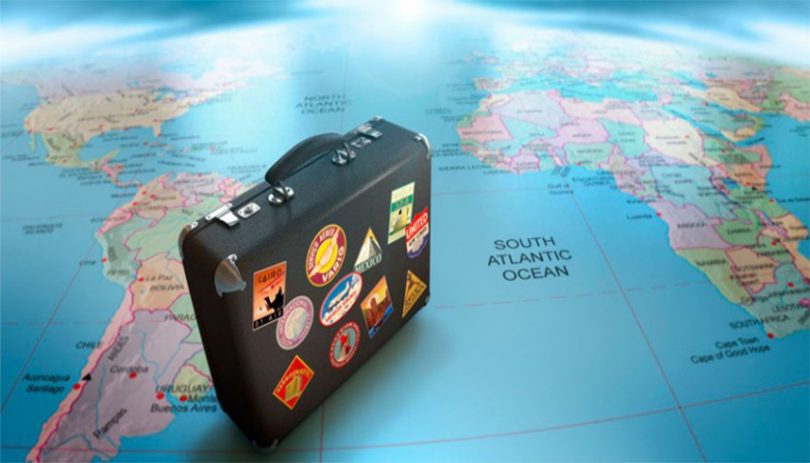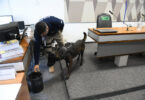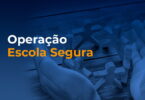Mais uma vez, a indústria de viagens e turismo enfrenta desafios novos e os já conhecidos. Viagem e Turismo não podem ser separados do contexto mundial em que operam. Seja em um contexto de guerra, de distúrbios políticos, numa epidemia ou de flutuações econômicas; o que ocorre no mundo, afeta diretamente todos os aspectos do turismo.
Por esta razão é recomendável que os profissionais que atuam nessa indústria, de vez em quando devem dar um passo atrás e revisar pelo menos alguns dos fundamentos básicos do seu segmento.
O ano de 2017 nos fez perceber o quanto a indústria do turismo vive no limite. Basta apenas um ato de violência sem sentido para repercutir negativamente e criar grandes problemas para a indústria do turismo. O ano passado foi marcado por muitos desses atos. O mundo e a indústria do turismo não tiverem que lidar apenas com esses episódios de violência, mas também enfrentou a fúria da mãe natureza, que criou desafios adicionais, desde terremotos até furacões, de tornados a secas, cenários de muito ou pouca água em determinadas regiões e com medo de doenças. Embora não existissem pandemias em 2017, o tratamento das doenças pairava no ar. Além disso, a dificuldade na logística para distribuição de alimentos e água para as áreas afetadas aumentava o risco de contaminação dos mesmos.
Para começar o Ano Novo com o pé direito, a Tourism & Tidbits de Turismo revê algumas das lições aprendidas dos vários diante os desafios que a indústria do turismo enfrentou durante 2017.
– Em um mundo cheio de estresse, é mais importante do que nunca que os profissionais de viagens e turismo gostem do que fazem e gostem de pessoas. Trabalhar na indústria do turismo não é fácil e quando ocorre uma crise, aqueles que estão apenas trabalhando por dinheiro vão se infelizes com muitos problemas a serem enfrentados. As pessoas que se preocupam com outras pessoas tendem a lidar melhor com as crises. Lembre-se de que o termo hospitalidade está relacionado ao termo hospital. O nosso negócio é cuidar dos outros.
– O atendimento ao cliente é essencial, não importa se há crise. Uma das razões pelas quais o Texas enfrentou tão bem o furacão Harvey está relacionada à tradição de prestação de excelente serviço ao cliente. A melhor gestão ensina a todos os envolvidos no processo a cuidar e oferecer o melhor serviço possível ao cliente. Quanto melhor o serviço ao cliente, maior a probabilidade de reduzir o estresse e encontrar soluções criativas.
-Sorrir! Sorrir! E continue sorrindo! Turismo e viagem estão normalmente relacionados à diversão, por isso se seus funcionários ou você não vêm trabalhar com um sorriso no rosto, então seria melhor mudar de ramo. Os visitantes percebem imediatamente nosso estado de espírito e atitude positiva ou negativa. Quanto mais agradável você for, mais bem sucedida será o seu negócio e assim sucessivamente em relação à comunidade de turismo local. Sorrir é contagioso e não importa se você está no meio de uma crise. Sendo gentil, mostrando que você se importa, e usando uma voz firme e estável você pode ajudar a diminuir o pânico numa situação de caos.
– Desenvolver um plano de comunicação. As coisas geralmente dão errado quando as pessoas não se comunicam. Isso significa que deve haver uma maneira das ambulâncias se comunicarem com a segurança pública, que os agentes de trânsito saibam para onde enviar as pessoas, que haja um único padrão de triagem para os feridos e que os assessores de imprensa tenham um alinhamento de discurso. Saiba quem deve estar onde, como as pessoas devem se comunicar e quem é responsável por quais ações.
– Seja honesto na sua comunicação. Uma boa estratégia de comunicação e marketing significa florear a notícia, mas isso não significa mentir. No momento em que você perde sua credibilidade, você perde tudo. Diga a verdade da melhor maneira possível. Dê fatos reais em tempo real e as pessoas retornarão quando a crise acabar.
– Não se esqueça de que o marketing pode ajudar no desenvolvimento de produtos, mas não pode substituir o desenvolvimento de produtos. Uma regra básica do turismo é que você não pode comercializar o que você não tem. Lembre-se de que a forma mais bem sucedida de marketing é o boca a boca. Gaste menos dinheiro em estratégias clássicas de marketing e mais dinheiro no atendimento ao cliente e no desenvolvimento de produtos.
– Saiba que o turismo é dependente da segurança. Em um mundo onde é possível fazer viagens “virtuais”, onde as reuniões podem ser realizadas através de um computador e onde o viajante está exposto a ciclos de notícias de vinte e quatro horas, nossos clientes podem estar onde é seguro, mas também onde não está. Países como a Turquia e o Egito tiveram um declínio importante em seu turismo porque eles foram percebidos como inseguros.
– Os recursos humanos são parte da segurança do turismo. É essencial que você conheça as capacidades das pessoas. Desenvolva listas de quem fala quais línguas estrangeiras ou que tem treinamento médico ou mecânico extra. Desenvolver um banco de habilidades é essencial para enfrentar situações adversas. Trate seus funcionários bem para que você tenha estabelecido uma relação de lealdade com eles em tempos difíceis.
– É essencial que você crie uma atmosfera segura. Para criar essa atmosfera, os profissionais de segurança locais devem fazer parte do planejamento desde o início. A segurança do turismo é mais do que simplesmente ter policiais ou profissionais de segurança em um lugar. A segurança do turismo requer análises psicológicas e sociológicas, o uso de hardware e um planejamento cuidadoso que integra o profissional de segurança na experiência de encantamento.
– Crie percepções positivas. No turismo, uma percepção pode não ser verdadeira, mas suas consequências são sempre verdadeiras. As reputações negativas não são fáceis de apagar e as percepções negativas podem destruir a indústria do turismo. Muitas vezes, os funcionários são defensivos ao invés de ouvir a percepção do cliente e buscar maneiras de melhorar. Contrariar um cliente, especialmente durante uma crise, apenas aumentará a percepção negativa em vez de eliminá-la.







